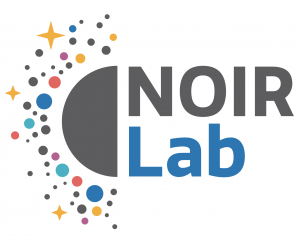Podcster: Rob Sparks. Guest: Jacob Bean

Title: The First Results From MAROON-X
Organization: NOIRLab
Links: www.noao.edu ; @NOAONorth; http://www.lsst.org/ ;https://nationalastro.org/ ; https://www.facebook.com/NOIRLabAstro ; https://www.instagram.com/noirlabastro/ ; https://www.youtube.com/noirlabastro ; @NOIRLabAstro
Description:
We are going to talk about an new instrument on the Gemini North telescope in Hawaii called MAROON-X.
Bio: Rob Sparks is in the Communications, Education and Engagement group at NSF’s NOIRLab in Tucson, Arizona
Dr. Jacob Bean is an Associate Professor at the University of Chicago and Principal Investigator of MAROON-X, a new exoplanet hunting instrument at the NOIRLab’s 8.1 meter Gemini North telescope.
Transcipt:
Q. First, could you tell us a little bit about yourself, your affiliation and research interests?
Q. We are going to talk about an new instrument on the Gemini North telescope in Hawaii called MAROON-X. Let’s get the acronym out of the way. What does MAROON-X stand for?
M-dwarf Advanced Radial velocity Observer Of Neighboring eXoplanets.
Q. There are some clues in the acronym about the science goals of MAROON-X. What types of objects is it designed to study and what type of data will it collect?
Q. What innovations allow MAROON-X to achieve radial velocity measurements of such high precision?
Q. There was recently a press release about the first results from MAROON-X. What was its first target and what did it find?
Q. It appears these results were obtained early during the pandemic. How did the pandemic impact these obverations?
Q. What are you most excited to see in the future from MAROON-X?
End of podcast:
365 Days of Astronomy
=====================
The 365 Days of Astronomy Podcast is produced by Planetary Science Institute. Audio post-production by Richard Drumm. Bandwidth donated by libsyn.com and wizzard media. You may reproduce and distribute this audio for non-commercial purposes.
This show is made possible thanks to the generous donations of people like you! Please consider supporting to our show on Patreon.com/365DaysofAstronomy and get access to bonus content.
After 10 years, the 365 Days of Astronomy podcast is entering its second decade of sharing important milestone in space exploration and astronomy discoveries. Join us and share your story. Until tomorrow! Goodbye!

